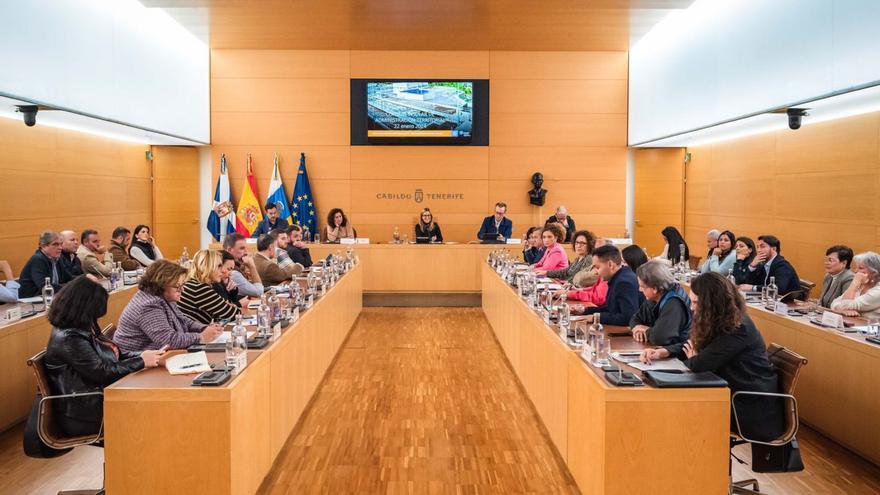
The Cabildo and the town councils of Tenerife They have taken the first steps to end the discharges on the Island. This was agreed upon in the first session of the year of the Territorial Administration Council (CIAT), held yesterday at the Insular Palace.
After the meeting, the president of the Cabildo, Rosa Davilahighlighted the importance of the agreement and thanked all the mayors “for their unanimous support for a policy “island and comprehensive water management system that aims to achieve sustainable water management.” Along these lines, he explained that “we have set ourselves, as an objective that cannot be postponed, a policy of zero discharges.”
With this purpose, from the insular Corporation «we are addressing the large infrastructures of the general purification and collector systems, “But it is essential to have the town councils and, therefore, we will design a shock plan with the town councils, so that we can address the very serious problem of sanitation and that the homes can be connected so that, finally, there are no discharges on our coastline.” Dávila explained.
Likewise, the president of the insular Corporation explained that the meeting addressed aspects related to the water supply in Tenerife, given the important challenges that the Island faces such as adverse weather, the significant decrease in rainfall and increase in temperatures; increased demand for irrigation and insufficient resources to address the necessary infrastructure.
Thus, the municipal representatives conveyed their support and willingness when it came to solving a problem that affects the entire Island as They are the discharges. The vice president of the Territorial Administration Council and mayor of Los Silos, Carmen Luz Baso, explained that “we have established a commitment on the part of the mayors with the Tenerife Council through which we can carry out a shock plan in which the supply network can be improved, the network sectorized and leaks detected to improve the tanks.
Other issues
On the other hand, municipalities and the insular Corporation addressed the housing problems that are being registered on the Island. At this point, the vice president of the Cabildo, Lope Afonso, reported on the implementation of an agreement with the Canary Institute of Housing (Icavi) through which the Cabildo may acquire land or housing developments that are unfinished.
Lope Afonso has indicated that the program is “flexible” and town councils can now make proposals. At the same time, he has been convinced that this commitment will help the “complex” problem of access to housing, especially for young people who want to become emancipated.
Policies for the promotion and creation of employment was another of the topics of the meeting. At this point, the Cabildo transferred to the municipalities the preparation of an employment plan with the town councils, apart from those that can be signed with the Canarian Employment Service. To do this, the planned amounts will be increased from 8.2 to 10 million euros.














